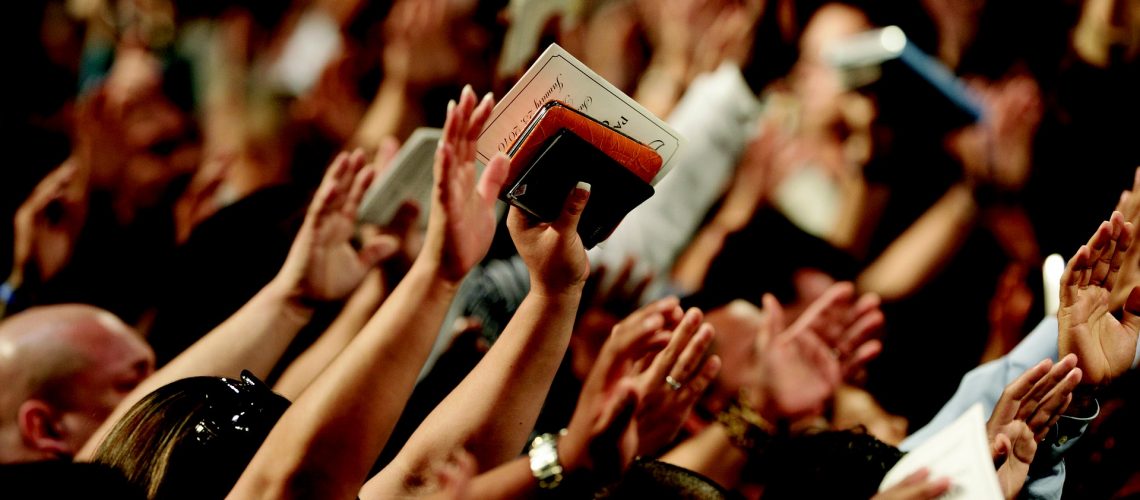I’ll never forget the day I discovered that Mary Magdalene was never a prostitute. I had just returned from yet another unfulfilling service at a Baptist church just one block away from my former apartment, and I was beginning to feel as though my relationship with God was reaching an impasse. I tried everything I could to improve my connection: church on Sundays (though I spent more time scrolling through Twitter than paying attention), Bible study sessions (despite missing the sentimentality and ecstasy of sermons), and prayer (although I did not know where to start or what to say). Finally, I admitted to myself that maybe I needed to try a different route and do more in-depth scriptural study on my own.
There are 66 books in the Bible. Rather than erratically scanning them page by page, I chose to find some appendix resources online. And there I found it: Mary Magdalene, the most famous prostitute of the Christian faith that I knew of, wasn’t a prostitute whatsoever. Her image was conflated with that of an anonymous woman in the Gospel of Luke, a mistake that began with Pope Gregory in the sixth century and has persisted ever since. When I read there was no biblical evidence to support that Mary Magdalene was ever a prostitute, I felt swindled my entire life yet cracked open and encouraged to begin anew.
What other assumptions have I blindly taken on as essential elements of my faith and conception of God? Who taught them to me and why? From there, I began to distrust hierarchy in the church and pulled deep into myself to recalibrate who I was as a Christian woman and my place in the world. Eventually I realized I cannot entrust my Christian identity to anyone else but myself and God.
I don’t talk publicly about my faith with solemnity very often. Usually on social media, I reveal my religiosity through jokes about the black church: long-winded preachers, aunties and their purse candy, loud music, and tithe-giving dodging. Generally, I do this because I am afraid of turning anyone off from me and my platform, which is built on progressive politics. I don’t want people to assume I am a “holy roller,” even though I silently pray on subways, invoke God’s name when I’m in pain, keep anointed oil in my home, and hung a crucifix around the knob of my front door. I don’t want people to think I’m trying to convert them, although that’s a pretty big stretch if talking about my personal life is immediately signaled as a way to encroach upon others’ affairs. But honestly, at the base level, I was afraid about being seen as “backwards” or “too conventional.” My current social circle is one of the most progressive, and I am, for the most part, the only religious one in many situations. I’m afraid others would want to censor themselves because I perhaps may be too sensitive. And let’s be frank: The institution of Christianity has harmed all sorts of marginalized people, including those who look like me. Would I be deemed as a hypocrite and therefore not worthy of anyone’s trust if I still adhere to the faith?
This upcoming July will mark three years living in New York City, a place where I’ve dreamed of making my mark for so long. From the moment I parked my belongings in a third-floor walk-up, I was surrounded by people who were unlike myself in terms of faith and spirituality. I could tell you more about the orishas than the apostles within a matter of months. I learned more about new moon rituals than fasting. With the latter, along with astrology, there had been much press about how these practices were helping countless young people like myself. Although such practices had believers for years, now it felt like it was in vogue. As for the Yoruba religion, I began to wonder if I had been deprived from some ancient form of blackness that had been retained in spite of the transatlantic slave trade. Could I be both conscious and Christian?
After the rise of Trump, I was uncertain about what my Christianity would look like as a black woman since some Christians I knew, both people of color and white people, voted for that man because he appealed to their conservativeness. According to Politico, “As Christian networks have become more comfortable with politics, the Trump administration has turned them into a new pipeline for its message. Trump has forged a particularly tight marriage of convenience with Pat Robertson’s Christian Broadcasting Network, which since early in the 2016 campaign has offered consistent friendly coverage and been granted remarkable access in return.” White evangelicals especially love Trump and therefore choose to ignore his bigotry or, worse, agree with it. Jesus was all about love and acceptance. He deliberately chose to associate with those who were the outsiders and the social outcasts. I was perplexed. What Bible were these Christians reading? Were we reading the same thing, and if so, how could we walk away with two completely different ideologies? Because of power. Their whiteness affords them a power, and because Christianity is the dominant religion in this country, their worship is a means of sublimating white supremacy.
Power within the Christian church is such a tricky subject for me to navigate when I deliberate on its influence with regard to my black womanhood. Christianity was enforced upon captured, then enslaved Africans brought to the New World. White enslavers manipulated biblical verses to argue that by the Curse of Ham, we were blackened by our sins and therefore cursed. We were meant to be servants as a way to justify the economic goals of European traders. I’ve heard among black circles the notion that Christianity was never our own despite Christianity being in Africa since the first century. How could I take on the religion of my ancestors’ masters and believe that this faith liberates me? How can I pray to a God whose image is often circulated in art as someone who looks so much unlike myself? Whenever I pray, I am constantly fighting against the tide of what the world dictates about my savior. I am fighting against every image of a white Christ that I’ve seen in sanctuaries, the whiteness that is automatically linked to benevolence and purity. I am fighting against this narrative that I am humiliating myself rather than humbling myself under an authority that is greater than my own. When prejudiced Christians read from the same Bible I do, I have to remind myself that while church will always be a part of my life, I have to be more proactive in my faith to get what I need.
I am not entirely sure why Mary Magdalene was my breakthrough and reliever to the impasse of my relationship to God. Perhaps the rediscovery of who she was made me think about how much women have been wronged or minimized in their grandeur within the church. Growing up, I learned much about women in the Bible as wives and mothers, paragons of virtue, not so much as witnesses, deacons, and prophetesses. I could recite Proverbs 31 (“Who can find a virtuous woman? For her price is far above rubies.”), not realizing until years later—on the same afternoon of my rediscovery of Mary Magdalene—that she wasn’t just a virtuous woman, but an exceedingly competent woman who was at the same time an aspiration, not a real person. In fact, many would argue that Mary Magdalene is the personification of wisdom and that’s it.
I was groomed to be the living proof of Proverbs 31, and that endeavoring came with much emotional turmoil whenever I remembered that I wasn’t anywhere near getting married. I have absorbed so many rules and guidelines on what would make me a good wife, rather than who would be a good husband for me. The pressure to remain a virgin, of course, was ever present. Sexist? Yes. Common? Yes. But this was my upbringing, and there was a time when I loved all of these admonishments in the midst of a warm community full of praise and worship. But one thing I’m learning to do as an adult is question and not let any discomfort with what is said to me rest. Instead, I go back to the Bible, and I commune with other women, particularly black women, for guidance, two methods that I would not have given any thought to just a few short years ago.
These thoughts have long been taking shape. I didn’t know the right words to say that would honor the anointed people who shaped me, while also forging my own path with Christ, even if I’m alone in that journey for many periods. I hadn’t quite found the words to tell to my progressive, cosmopolitan circles that, yes, I believe anyone should have a right to abortion, while at the same time having a Bible Gateway app on my phone that I check for the scripture of the day to keep me going. I hadn’t been able to articulate that, as a Christian, I am immensely privileged in this country, and yet, as a black woman, I have had to grapple with power within the Christian church in ways many would not understand. Maybe that fight will follow me my entire life, but what I can state with confidence is that my suspicion with others and institutions who hold more power than I do have led me to trust myself and God more than I ever had.
I still go to church on Sundays. I still sit in a pew and listen to a pastor or priest. However, I remember that I have power myself to go back to the same text they do and trust myself and God that I will get there. Wherever there might be.
This article is from medium, published by Morgan Jerkins

